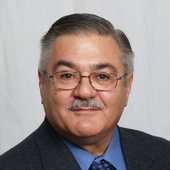While reading an article recently about indoor allergens, I found a quote from a allergy and asthma Doctor giving some wrong recommendations for treating allergies in the home. Since I am NOT a Doctor, nor have I ever played one on TV, I stay away from diagnosing people or telling them how to treat their bodies. The good Doctor had overplayed his knowledge of homes and home maintenance by recommending replacing your standard air conditioning or furnace filter with a super high efficiency HEPA filter. There is science and good research behind these filters. First, thing first. HEPA stands for High Efficiency Particulate Air. Originally, the HEPA filter was designed in the 40's for use in the Manhattan Project to prevent the spread of airborne radioactivity. As it became commercialized, and the original term was trademarked and later became a generic term for highly efficient filters. True HEPA filters, as defined by the U.S. standards adopted by most American industries, remove at least 99.97% of airborne particles 0.3 microns (µm) or larger in diameter. That measurement of 0.3 microns doesn't mean much to the average person, so here are some examples: mold spores are 1 to 30 microns; facial powder is 0.1 to 30 microns; and bacteria are 0.3 to 30 microns. General thought is that particles over 10 microns settle by gravity in a matter of hours, whereas smaller particles, less than 1 micron, can stay afloat for weeks.
First, thing first. HEPA stands for High Efficiency Particulate Air. Originally, the HEPA filter was designed in the 40's for use in the Manhattan Project to prevent the spread of airborne radioactivity. As it became commercialized, and the original term was trademarked and later became a generic term for highly efficient filters. True HEPA filters, as defined by the U.S. standards adopted by most American industries, remove at least 99.97% of airborne particles 0.3 microns (µm) or larger in diameter. That measurement of 0.3 microns doesn't mean much to the average person, so here are some examples: mold spores are 1 to 30 microns; facial powder is 0.1 to 30 microns; and bacteria are 0.3 to 30 microns. General thought is that particles over 10 microns settle by gravity in a matter of hours, whereas smaller particles, less than 1 micron, can stay afloat for weeks.
Products that claim to be "HEPA-type" or "HEPA-like" are not true HEPA. A true HEPA filter would create major problems for a residential a/c system if it was not designed for it. Unfortunately, most systems are designed by the installers to operate with filters on the lower spectrum of air filters. They provide more airflow through the coil with just the right back-pressure. Installing a high efficiency filter may restrict the airflow through the coil causing other a/c system problems.
MERV, or Minimum Efficiency Reporting Value, ratings are the better gauge of filters for modern homes. MERV is a number from 1 to 16. Most of the furnace filters I find are 4 or 5. Those are the "see-through" filters that typically only stop those things in the air larger than golf balls. The pleated filters that cost a few dollars are usually at least a MERV 6-7. Better filters that can stop SOME mold spores are rated MERV 7-8. Higher MERV rating filters are more difficult to find and can easily cause problems for your average home. Higher rated filters are for hospitals and other special facilities. Never should a HEPA filter be installed in a system that was not designed for it.
So what is a highly allergic person to do?
1. Know your indoor allergy triggers and stay away from them.
2. Keep the dust down in your indoor environment.
3. Change your a/c or furnace filter regularly, preferably every 30 days during the season.
4. Vacuum often with a cleaner equipped with a HEPA filter.
5. Wash bed linens in water at least 130 degrees F once a week and replace your pillow yearly.
While none of the solutions offered above are "end-all" solutions, they may make the difference between living well and just surviving. For more tips on allergen proofing your home or office, visit our special website, www.FlAirTesting.com

Comments(0)